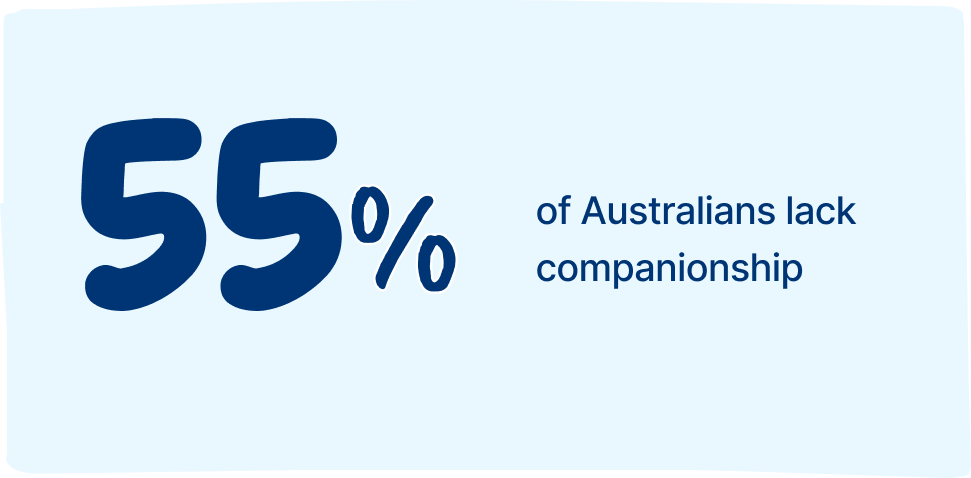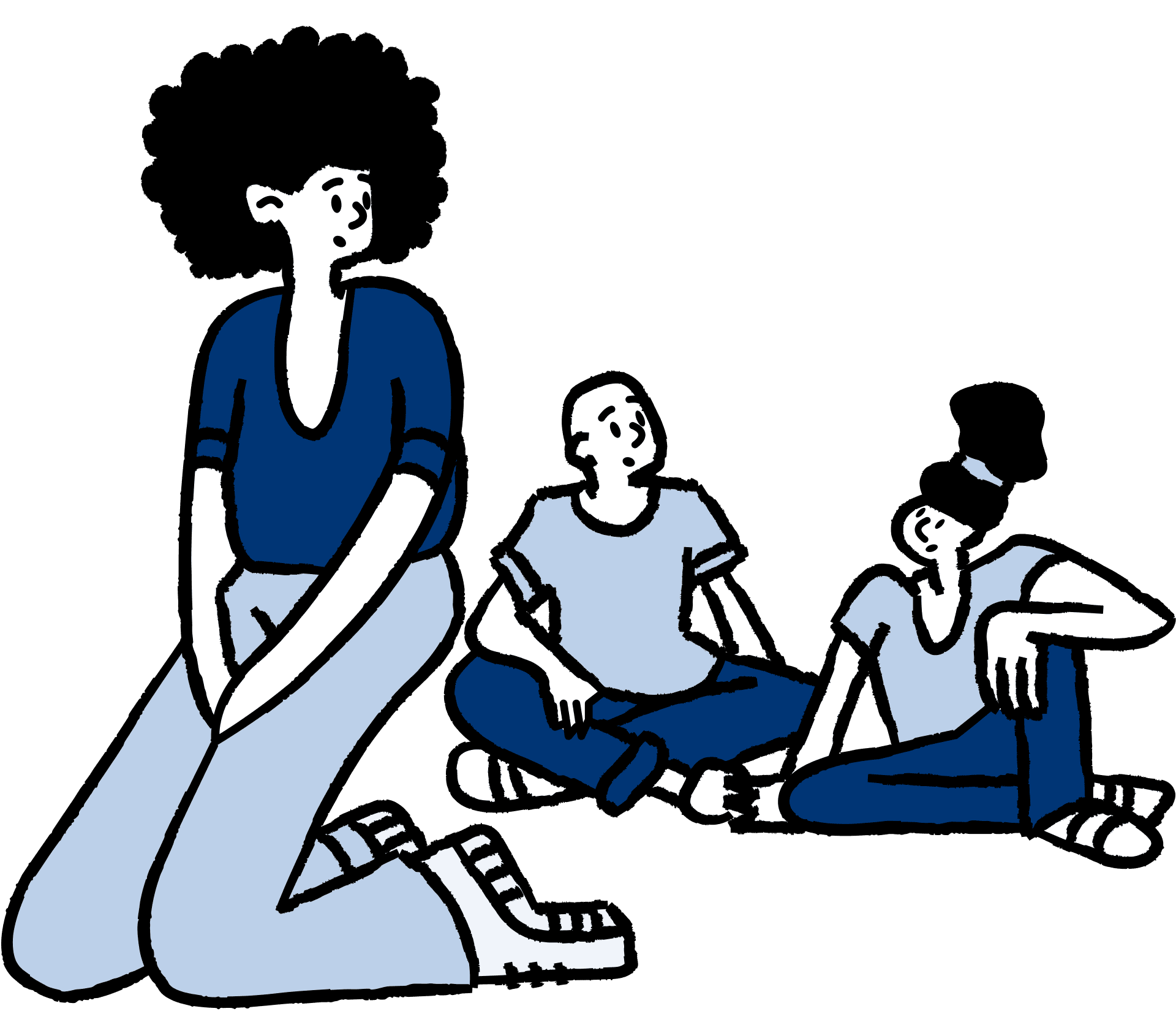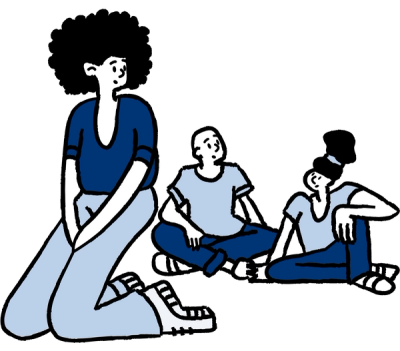Understand the basics of loneliness
Also in this topic:
Loneliness is the feeling of wanting greater social connection than you have. If you feel lonely, you are lonely.
Loneliness is not the same as being alone. You can spend time totally secluded in a cabin in the bush and not feel lonely. Equally, you can be surrounded by familiar faces at a vibrant party, yet still feel completely isolated.
Loneliness generally relates to the quality of our relationships, rather than their quantity. Everyone has a different appetite for social connection, so it’s not about how many friends you have, but how close you feel to them.
Everyone deserves to feel seen, valued, and cared for by those closest to them. Loneliness is our body’s way of telling us we should try to develop new or stronger social connections.
Is loneliness a mental health condition?
Loneliness is not a mental health condition on its own. However social relationships are a fundamental human need, so loneliness can have serious impacts on both our mental and physical health.
One study has even shown loneliness can affect our physical health as much as smoking 15 cigarettes a day.
Loneliness is also linked to mental health in two important ways:
- Mental health problems can cause loneliness. For example, people with social anxiety may feel lonely because it’s hard for them to connect and form meaningful relationships with others.
- Extended periods of loneliness can develop into depression or other mental health problems. This is because loneliness can grow into a low-mood that’s hard to shake, feelings of worthlessness or hopelessness, or anxiety about interacting with other people.
“Having anorexia meant I couldn’t talk to anyone about it because no one understood, and that made me feel alone and isolated.”
Loneliness doesn’t always turn into depression or another mental health condition. However, it can harm your health if it's not managed. No matter how long you’ve felt lonely or how strong those feelings are, loneliness can be treated.
We have both short and long term strategies that can help you, and if you need to talk, Lifeline is just a phone call, text or chat away.
Who does loneliness affect?
Loneliness doesn’t discriminate. It can affect anyone, regardless of age, gender, relationship status, education, or social standing. It can affect the social butterfly just as much as the lone ranger. Nobody is immune to loneliness because as people, we all have social needs we have to fulfill to live happy and rewarding lives.
Loneliness is more common than you may think. In Australia:
- Around 1 in 4 Australians feel lonely, (likely to be higher since the pandemic)
- 1 in 3 Australians say they don’t feel part of a group of friends
- Almost 55% of the population feel they lack companionship at least sometimes
- Young people, especially young women, are at greater risk of feeling alone.
So if you’re feeling lonely, you’re certainly not alone.

When is loneliness a problem?
Loneliness is a problem when it feels like a problem for you.
It’s normal to feel lonely now and then, but if you relate to any of the following, then you may want to consider reaching out for support:
- Your feelings of loneliness are causing you pain and distress
- Your feelings of loneliness have been dragging on for a long time
- Your feelings of loneliness have started to negatively impact your life
- As well as feeling lonely, you’re feeling hopeless or worthless too.
If you’re feeling lonely, you can explore our short term or long term strategies for coping with loneliness. The tips we have put together are practical and easy to apply, and can help you feel connected and valued by the people around you.
If you need to connect with someone, remember that Lifeline is always here for you, and we’ve curated a list of support services and tools and apps you can use to tackle loneliness too.





